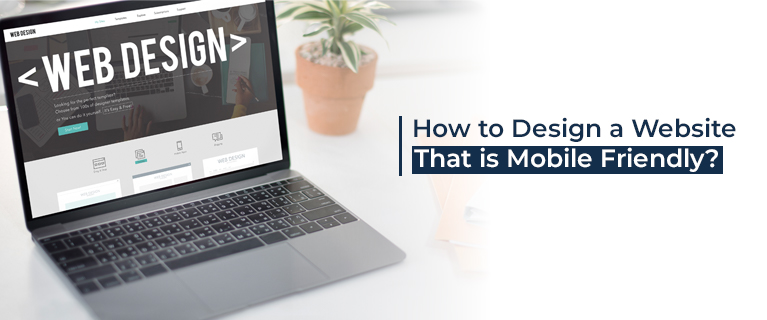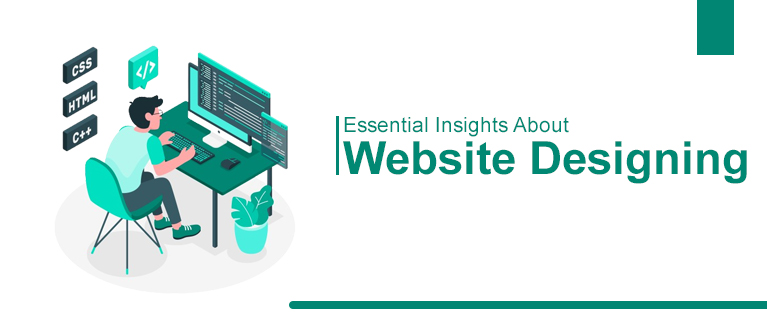Debunking The Most Common Website Designing Myths
In the current digital era, both individuals and businesses need to have a strong online presence. A well-designed website can be a powerful tool for attracting customers, showcasing products or services, and establishing credibility. However, despite the importance of website design, there are many myths and misconceptions that continue to persist. In this blog post, we'll debunk some of the most common website designing myths and separate fact from fiction.
Myth : Flashy Designs Are Better
One of the most persistent myths about website design is that flashy and extravagant designs are better. While it's true that eye-catching visuals can capture attention, excessive use of flashy elements like animations, pop-ups, and overly complex layouts can actually detract from the user experience. In reality, a clean and intuitive design that focuses on usability and functionality is far more effective in engaging visitors and driving conversions.
Read also this -: Is Website Designing Profitable for Companies in IndiaMyth : Mobile Optimization Isn't Necessary
With the increasing prevalence of smartphones and tablets, mobile optimization has never been more important. Yet, some still believe that it's acceptable to neglect mobile users and focus solely on desktop design. In truth, a significant portion of internet traffic now comes from mobile devices, and search engines like Google prioritize mobile-friendly websites in their rankings. Ignoring mobile optimization not only alienates a large portion of potential visitors but also harms your site's search engine visibility.
Myth : DIY Website Builders Are Just as Good as Professional Design
The rise of DIY website builders has led many to believe that professional web design services are unnecessary. While it's true that DIY platforms offer convenience and affordability, they often come with limitations in terms of customization, functionality, and scalability. Professional web designers have the expertise to create custom solutions tailored to your specific needs, ensuring a unique and high-quality website that stands out from the crowd.
Myth: SEO and web design are unrelated
Search engine optimization (SEO) is often viewed as a separate discipline from web design, but the two are closely intertwined. A well-designed website incorporates SEO best practices from the outset, including optimized code, fast loading times, mobile responsiveness, and clear site structure. Neglecting SEO during the design process can result in poor search engine rankings and diminished visibility online.
Myth: The Work Finishes Once the Website Goes Live
Some believe that once a website is launched, there's no need for further updates or maintenance. In reality, maintaining a website is an ongoing process that requires regular updates, security patches, and content refreshes. Additionally, user feedback and analytics data should be used to identify areas for improvement and optimization over time. A website is never truly finished; it should evolve and adapt to meet the changing needs of its audience.
Myth : All Websites Need to Follow the Latest Trends
While staying current with design trends can be beneficial, blindly following every trend can be counterproductive. Trends come and go, and what's popular today may be outdated tomorrow. Instead of chasing trends, focus on creating a timeless and user-friendly design that prioritizes usability and functionality above all else. A well-executed design that meets the needs of your audience will always be in style.
Read also this -: Why Businesses Should Hire Website Design & Development CompanyMyth : Accessibility Isn't Important
Accessibility is often overlooked in website design, but it's a critical consideration for ensuring that all users, including those with disabilities, can access and navigate your site effectively. This includes providing alternative text for images, ensuring proper contrast for text readability, and implementing keyboard navigation options. By making your website accessible to everyone, you not only comply with legal requirements but also demonstrate your commitment to inclusivity and user experience.
Conclusion:
In conclusion, debunking these common website designing myths is essential for creating effective and successful websites. By understanding the truth behind these misconceptions, businesses and individuals can make informed decisions that lead to better user experiences, improved search engine rankings, and ultimately, greater online success. Remember, website design is not just about aesthetics; it's about creating a functional and user-friendly platform that serves the needs of your audience.



Comments
Post a Comment